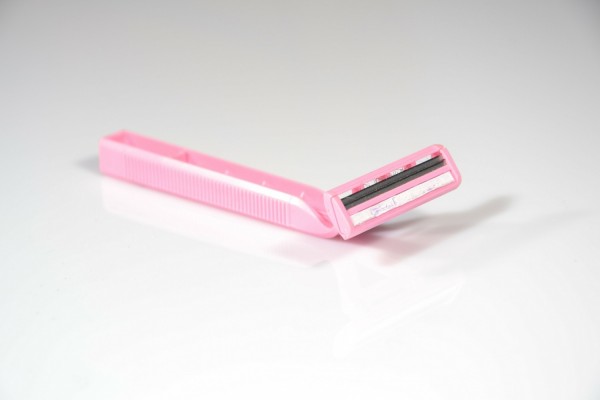Can Armpit Shaving Cause Breast Cancer? Here’s What You Need to Know

Frequent shaving of the underarms, combined with the immediate use of deodorant, might increase the chances of women likely getting breast cancer. This was according to a study, which evaluated more than 400 female respondents with breast cancer in the United States.
The research claims that deodorants lead to breast cancer got to the headlines after UK-based University of Reading's Phillipa Darbre published a paper stating that preservatives included in deodorants and antiperspirants could be reflected in breast tumors.
However, there was no way to prove that preservatives, like para-hydroxybenzoic acids or parabens, actually resulted in tumors. Now, however, most deodorants do not contain any parabens anymore.
Possible Link to Breast Cancer
In 2004, it was reported that the US research, made by Kris McGrath, a Chicago doctor from Northwestern University, proposed that deodorants and antiperspirants might have a link with breast cancer.
However, the doctor said, such a link was possible only if they were applied together with underarm shaving. The study was said to have too many weaknesses to be considered as conclusive.
The said issue initially gained publicity during the 90s after a prank email widely circulated. Specifically, the said email claimed that armpit shaving created tiny nicks that allowed unidentified chemicals, which antiperspirants or deodorants contained, to enter the human body and activate tumors.
A team of researchers at the Seattle-based Fred Hutchinson Cancer Research Center included questions in their study, particularly about the use of deodorant and armpit shaving, comparing 800 women who had breast cancer, with another set of 800 women of the same age, randomly picked. The team did not find evidence of such an association.
DON'T MISS THIS: 7 Hills Pharma Receives Groundbreaking 'Patent Estate' That Covers Integrin Activators to Enhance Efficacy of Immunotherapies
Different Finding
Despite several studies that did not find evidence of any link between the use of deodorants and underarm shaving, and breast cancer, another study was later on published, and it presented a different finding.
Specifically, the said research showed that frequency and earlier inception of deodorant use with the shaving of armpit was indeed, linked with a diagnosis of breast cancer.
Researchers of this particular study explained that breast cancer is possible in women who apply antiperspirants and shave their underarm more than thrice each week.
This particular study indicated that armpit shaving with the use of deodorant or antiperspirant tends to play a vital role in women to get breast cancer possibly.
Reports on science and medicine present that shaving takes out not just the underarm hair. It also removes the skin of an individual's armpit and thus, ends up shaving off the top skin layer.
As there is just a small amount of aluminum absorption the whole skin, when the outer layer is stripped off using a razor, then an antiperspirant is rubbed on after, one gets a six-fold increase in absorption of aluminum through the skin.
Does Age Matter?
One study found the more enthusiastic the armpit regime, the younger the women were when detected with breast cancer.
As earlier mentioned, those shaving at least thrice a week and applied antiperspirant or deodorant at least two times a week nearly 15 years younger when they were diagnosed with cancer than females who did not do any of the two.
The same study also indicated that neither of the two practices was associated with diagnosis among younger-aged women. The authors suspect that the aluminum compounds which many products contained might be the culprit.
Nonetheless, this study had major limitations, and the most serious was the lack of a control group that did not have breast cancer.
This means that there could possibly be an explanation for such findings that younger women applied deodorant or antiperspirant, and they shave more frequently compared to older women.
IN CASE YOU MISSED THIS: Avelas Announces Latest Development, a First for Its Breast Cancer Patients
Aug 06, 2020 10:06 AM EDT






